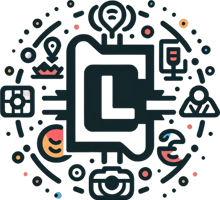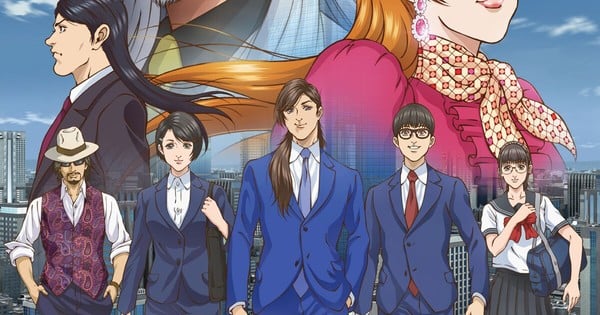When last we left would-be trillionaires Haru and Gaku, it seemed an irreparable rift had formed between them. Having unilaterally decided to use all of their company Trillion Game’s available cash to buy two billion yen in entertainment company God Promo’s stock, Haru left Gaku without any funds to pay for development of their planed mobile game. Describing Gaku’s creative endeavor as merely a “ruse,” Haru walked off, leaving Gaku reeling and unable to vocalize his objections.
Throughout Trillion Game’s first season, we were teased with the possibility of a Haru and Gaku fallout – during the infrequent flash-forwards to Gaku’s successful future as an apparently solo businessman, Haru was nowhere to be seen. Then there was business rival Kirihime’s confident assertion that companies set up by friends inevitably dissolve due
to conflict. For much of Trillion Game’s second half, Haru is absent (which may be a good thing), leaving us to focus on Gaku, while wondering if the supposedly central friendship can be repaired.
As usual with Haru, nothing is ever quite as it seems. For an alleged lead character, we know little of his personal life – not his family or childhood, nor do we learn anything about his living circumstances, nor anything about his motivations other than his overwhelming desire to make ungodly quantities of money. This makes him very hard to root for, so it’s just as well we spend more time with Gaku, who fits the fish-out-of water anime protagonist mold more comfortably. Haru’s essentially a thinly-characterized plot device who swoops in every now and then to cause chaos and act unpredictably, smirking
as if everything is going entirely to plan.
Of course, most of the time it seems he’s winging it, making snap decisions left and right, lying his ass off to steer others in the direction he wants. Gaku is honest to a fault, yet even he learns fro Haru to bluff at the most important times. Haru treats everything like a game, including the livelihoods of his employees. This means he appears both coldly aloof
and unexpectedly generous, depending on what the plot requires him to do – either leaving the company without funds to pay its workers, or suddenly announcing he’ll increase everyone’s wages tenfold. While he and Gaku are supposed to be partners, it’s almost always the unfeasibly ballsy Haru who makes the big, game-changing decisions.
This cour is split into three main arcs relating Trillion Game’s ascension in the entertainment industry. First is the aforementioned mobile game story where Gaku (with some off-screen help from Haru) manages to poach Dragon Bank’s genius gacha game designer, the money-obsessed Hebijima, a middle-aged guy with bleached blonde hair and
an utterly cringe-worthy personality. You can tell this is by the same author as Dr. Stone, because most characters’ personalities can be distilled down to one or two simple traits. Then there are the infodumps – which while aren’t quite as frequent as Dr. Stone’s science seminars, do layer on basic economics in fairly didactic fashion.
I was very vocal in my review of Trillion Game’s first cour about my disdain for unregulated, greed-infested capitalism. Writer Inagaki at least attempts to infuse some basic morality into the gacha gaming arc. While openly admitting the predatory business practices and dark design aspects that contribute to capturing players in a gacha ecosystem, Trillion
Game goes out of its way to advocate for workers’ rights, and to argue for the fair remuneration of creatives in the gaming industry. You know, paid for by money harvested from whales trapped by terminal gacha addiction? (As a long-term Fate/Grand Order player, I can’t really criticize too convincingly here…)
While the second arc pits Trillion Game directly against their behemoth rival Dragon Bank, placing Kirihime’s powerful father as the scheming, greedy villain (there’s little difference between him and Haru other than age), the third arc returns to a vague examination of the morality of capitalism. Haru wants his own news service, viewing this as a way to
legitimize Trillion Game’s new media streaming outlet. Again, this is another “ruse,” but at least he recognizes Gaku’s previous success at making an actually decently popular gacha game when he didn’t need to. Haru argues that businesses need “scumbags” like him to provide the money and resources while others can engage with the honest work of making decent products. As much as I hate to admit it, this most likely is how businesses work. After all, aren’t a large proportion of CEOs supposedly sociopaths?
I do worry that most of this attempt at deeper justification for Haru’s actions is merely lip-service, however. By the end of these twenty-six episodes we know little more about Haru than we did at the beginning. He wants to be the greediest, richest man in the world. Why? Character exploration doesn’t seem to be the point. At least Gaku develops as a person,
gradually becoming more confident, stepping out from beneath Haru’s shadow to make some of his own startlingly brave choices. While it’s likely he’ll never stop being a socially awkward geek (and his worry about money changing him stands him in good stead for remaining a decent human being), I guess it’s almost possible to imagine him eventually leading a business without Haru’s direct supervision.
During Haru’s absence for much of the season, the supporting cast get some more opportunity to shine, from passionate game designer Sakura, to overwhelmingly sensible and straight-laced company president Rinrin, they all get some fun moments. I do like TV reporter Akari, only introduced in the last few episodes, for her infectious intensity and integrity. At least there are some other actual human beings we can empathize with in Trillion Game, even if they’re all dragged into the orbit of Haru’s black hole of limitless avarice.
The story’s a freewheeling mess, rushing from one mad scheme to the next, with regular daft cliffhangers and last-minute plot twists. At least that means Trillion Game is rarely boring, even if it’s impossible to take its ridiculously contrived plot seriously. Its upbeat soundtrack is oddly old-fashioned, at turns urgent and humorous – if anything, it sounds like a classic heist movie. I could almost imagine the Rat Pack providing the tunes had it been a few decades older. (There’s even an episode set in Vegas, because of course there is).
Ryōichi Ikegami’s character designs still look awkward when translated to animation, and it’s certain that Studio Madhouse has their C-team on this show. The animation is mostly kept to a minimum – no Frieren-style sakuga cuts here, I’m afraid. On the few occasions that CG is used during crowd scenes, it looks embarrassingly awful, with overly-simplified
character rigs that look desperately out-of-place. While I got most of my capitalism criticism out of my system last time, Trillion Game still asks its viewer to root for a seemingly amoral, entirely self-interested anti-hero, who just happens to make decisions that sometimes benefit his friends. In real life, I’d run the hell away from someone like Haru, and it’s a miracle I managed to stick it out this long with the animated version. I didn’t dislike the second half quite as much as the first, but I remain disappointed that writer Inagaki didn’t use his story as a more incisive deconstruction of the capitalist dream, like I hoped it might have been. As a piece of fluffy, silly entertainment, it’s fine. I have little compulsion to follow Haru or Gaku’s far-fetched story any further, though.

